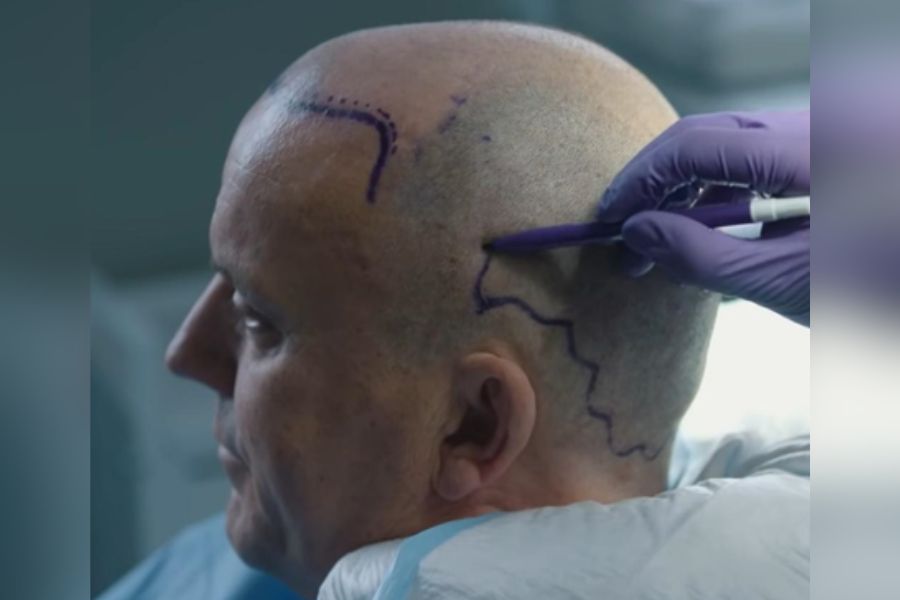Performing a hair transplant on Afro-type curly hair may present greater difficulties compared to other hair types. Individuals of African American, black, or Afro-Caribbean descent generally possess hair characterized by tightly coiled curls. This hair type exhibits curly texture both on the surface and beneath the scalp. The complexity of performing a hair transplant on Afro-typical hair is a primary reason why it is typically seen as a tough procedure. Nevertheless, our proficient specialists in ethnic hair transplant can effortlessly carry out this surgery in Turkey. Moreover, the expense associated with these hair transplant procedures is far more economical when compared to other European nations and the United States.
Top 3 Best Afro Hair Transplant Clinic In Turkey
- Este Favor Hair Transplant Clinic
- Memorial Hospital
- Medicana
What is The Best Hair Transplant Method for Afro American Hair
To gain a deeper understanding of the two approaches used for afro hair transplantation, I recommend conducting internet study. The two methods used for hair transplantation are the Follicular Unit Transplantation (FUT) method and the Follicular Unit Extraction (FUE) method.
The Follicular Unit Transplantation (FUT) treatment involves the transplantation of a strip of hair follicles from the occipital region of the scalp to areas experiencing hair loss or thinning. Conversely, a Follicular Unit Extraction (FUE) procedure involves the relocation of hair follicles from various parts of the head to sections of the scalp that are experiencing thinning or baldness with the use of tiny punctures.
According to experts, the FUE technique is widely regarded as the most popular method for doing hair transplantation on individuals with afro hair. This procedure supplants the conventional FUT surgery by specifically targeting the extraction and implantation of individual hair follicles while preserving the natural configuration of your hair. Due to its ability to safeguard the roots of afro-type curly hair with little negative consequences and long-lasting advantages, this technique is highly suitable for afro hair transplants.
According to certain specialists, DHI (Direct Hair Implantation) may be a more suitable option than FUE therapy, depending on the patient's hair structure. Due to the utilization of a specialized CHOI Pen, also known as a DHI Implanter or DHI Pen, in the hair implantation process, the duration required to perform the surgery can be reduced compared to FUE.
Afro Hair Transplant Costs in Turkey
A significant number of people in European countries struggle to assess their financial ability to undergo a hair transplant due to the exorbitant expense of the treatment, which is usually calculated on a per graft basis.
Best Afro hair transplant clinics in Turkey provide their patients inclusive packages that cover all aspects of the procedure. These hair transplant packages include necessary medications, free transfers and lodging, and the cost remains the same regardless of the quantity of grafts transplanted. Furthermore, they guarantee the absence of hidden costs, thereby removing any ambiguity regarding persons' financial capacity to afford their transplant.
When comparing the expenses associated with hair transplants in the United Kingdom or European countries, it is evident that the expenditures in Turkey are merely a fraction of those in these places, typically one third or one fourth. Most reputable Turkish hair transplant clinics provide hair transplant operations with prices ranging from $1,300 to $2,000.
Changelles for Afro African-American Hair Transplantation
One of the primary difficulties in transplanting African-American hair is in the inherent curliness of the hair follicles. The curls continue beyond the scalp and reach into the base of each hair, making it more challenging to extract from the scalp without causing harm to the root. In addition, African individuals generally have hair follicles that are encased in a denser and more constricted layer of epidermis (skin) in comparison to individuals from other ethnic backgrounds.
In the current preferred method of hair transplantation called Follicular Unit Extraction, it is crucial for the technician to completely extract the hair root to prevent any potential damage or rupture of the follicle. This could potentially lead to a high rate of transection (failure of the transplanted hair to take root) and produce undesirable outcomes.
One additional concern to be aware of in African-American hair is the potential occurrence of keloid scarring on the scalp when the wounds from the extraction process recover. Keloids are elevated non-cancerous skin growths that result from excessive collagen production during the healing process. Keloids are more prevalent in African-Americans, Hispanic Americans, and individuals with darker skin in the United States. They are also hereditary.
In order to surmount these obstacles, it is crucial to select a hair clinic or master technician who possesses expertise in the transplantation of African-American hair. Ensure that you request examples of former patients with comparable hair to yours, and to view their prior and post-treatment photographs.
Where is The Best Place For Afro Hair Transplant in Turkey? Best Afro Hair Transplant Clinic in Turkey
Hair transplants in Istanbul are the focal point of interest in Turkey. Este Favor Clinic is the preferred destination for Afro hair transplantation due to its high level of expertise and extensive sixteen-year track record. Este Favor, a renowned brand in Turkey for FUE hair transplantation, performs a significant number of annual hair transplants specifically for individuals with Afro hair. The Este Favor Hair Transplant team, consisting of nurses dedicated to achieving optimal results in hair transplantation, also maintains a high level of professionalism. Hence, Este Favor Clinic is regarded as one of the most highly endorsed clinics for individuals contemplating a hair transplant in Turkey, irrespective of their hair texture.
This is a Public Relations (PR) article has been published as received without any editorial enhancement or modifications. The Telegraph Online does not endorse or guarantee the accuracy, reliability, or completeness of any information presented in this article. The organization is not responsible for any errors or omissions in the content or for any losses, damages or injuries of whatsoever nature directed towards whomsoever arising out of the use of information provided in the article.

